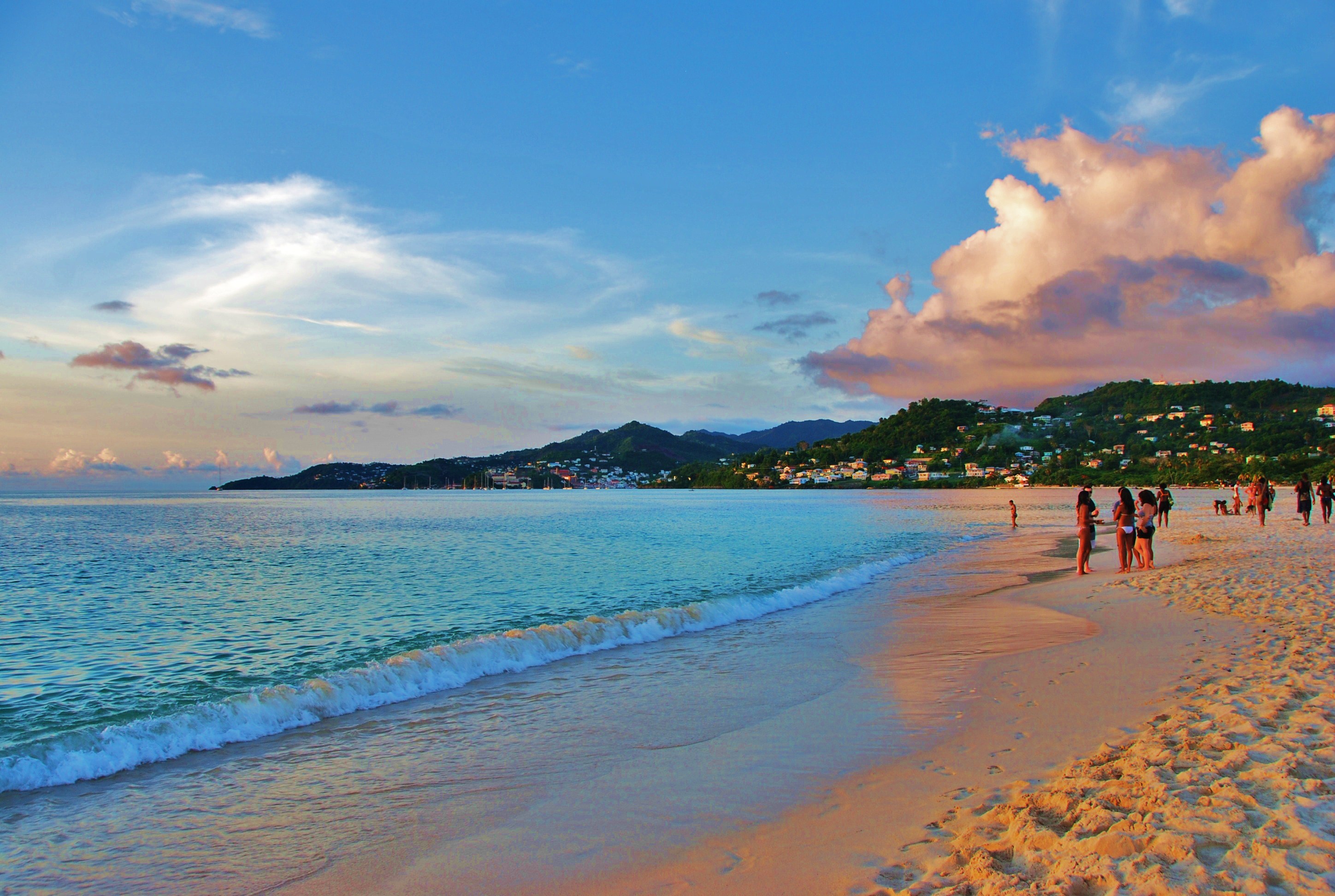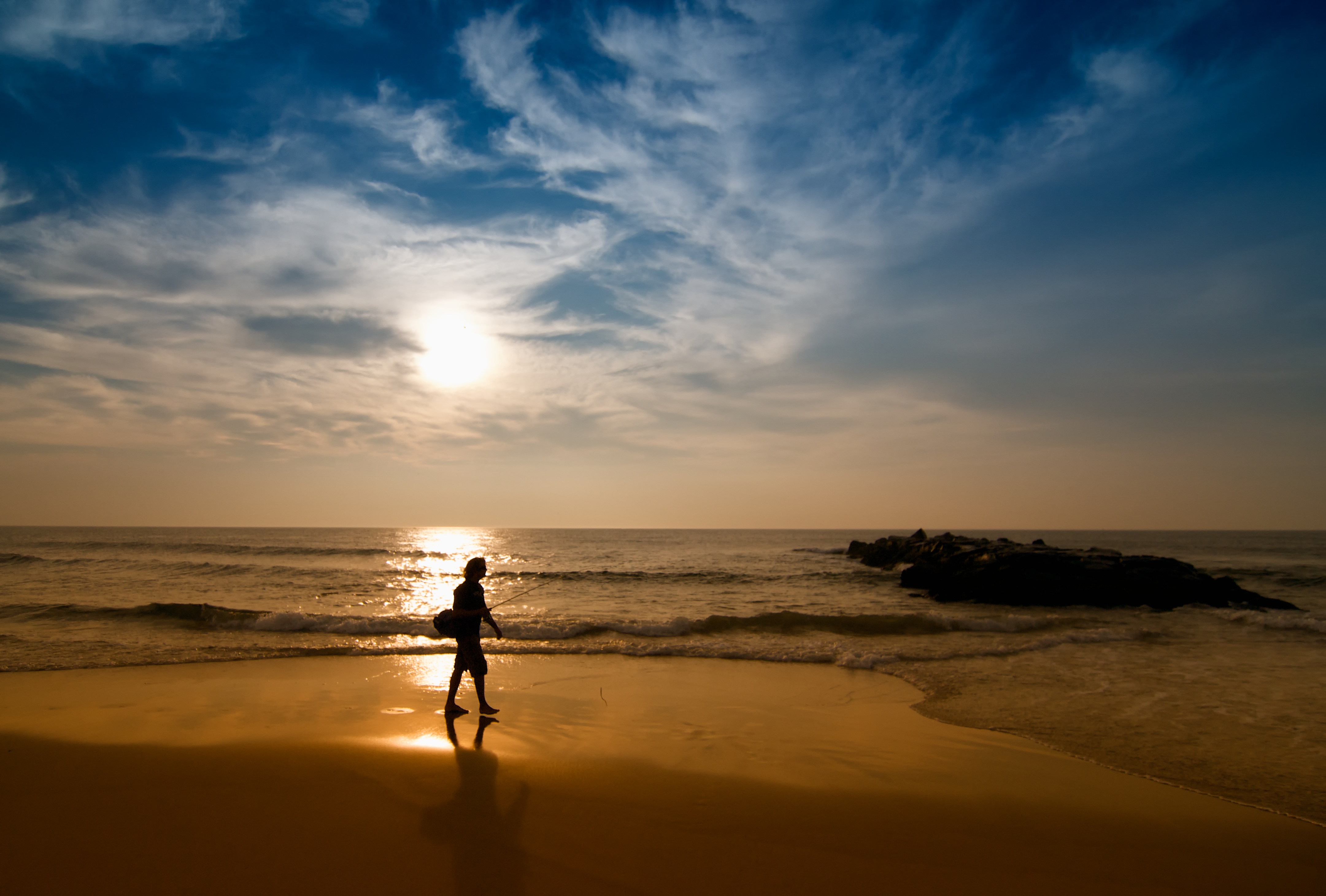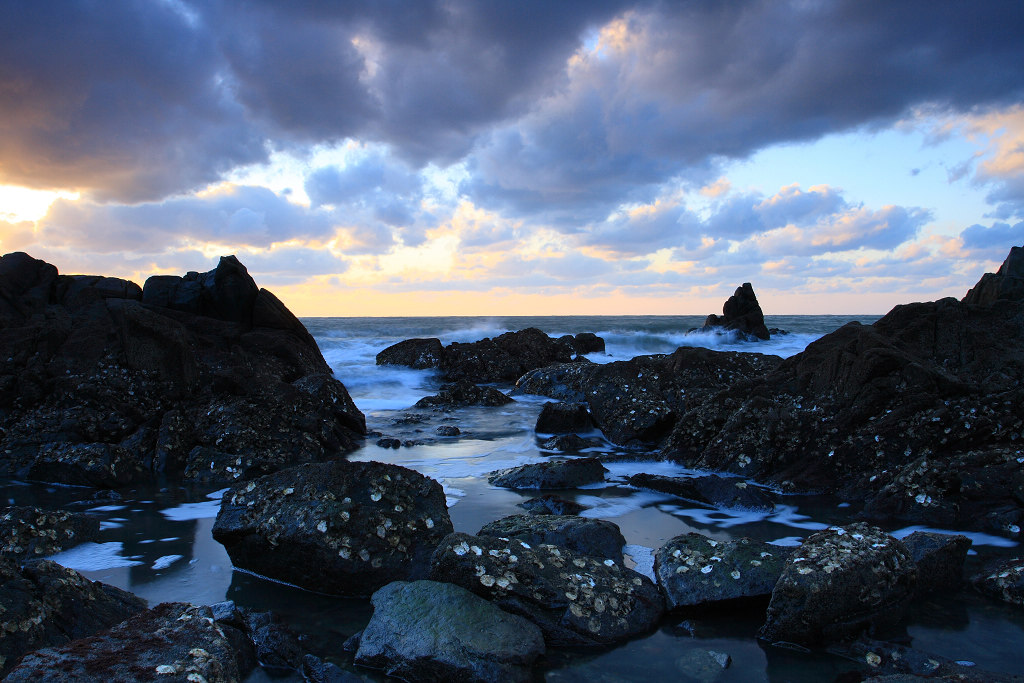Shoreline on:
[Wikipedia]
[Google]
[Amazon]




 A shore or a shoreline is the fringe of
A shore or a shoreline is the fringe of




 A shore or a shoreline is the fringe of
A shore or a shoreline is the fringe of land
Land, also known as dry land, ground, or earth, is the solid terrestrial surface of the planet Earth that is not submerged by the ocean or other bodies of water. It makes up 29% of Earth's surface and includes the continents and various isl ...
at the edge of a large body of water
A body of water or waterbody (often spelled water body) is any significant accumulation of water on the surface of Earth or another planet. The term most often refers to oceans, seas, and lakes, but it includes smaller pools of water such ...
, such as an ocean
The ocean (also the sea or the world ocean) is the body of salt water that covers approximately 70.8% of the surface of Earth and contains 97% of Earth's water. An ocean can also refer to any of the large bodies of water into which the wo ...
, sea, or lake
A lake is an area filled with water, localized in a basin, surrounded by land, and distinct from any river or other outlet that serves to feed or drain the lake. Lakes lie on land and are not part of the ocean, although, like the much lar ...
. In physical oceanography, a shore is the wider fringe that is geologically modified by the action of the body of water past and present, while the beach
A beach is a landform alongside a body of water which consists of loose particles. The particles composing a beach are typically made from rock, such as sand, gravel, shingle, pebbles, etc., or biological sources, such as mollusc shell ...
is at the edge of the shore, representing the intertidal zone
The intertidal zone, also known as the foreshore, is the area above water level at low tide and underwater at high tide (in other words, the area within the tidal range). This area can include several types of habitats with various species ...
where there is one. In contrast to a coast
The coast, also known as the coastline or seashore, is defined as the area where land meets the ocean, or as a line that forms the boundary between the land and the coastline. The Earth has around of coastline. Coasts are important zones in n ...
, a shore can border any body of water, while the coast must border an ocean or a sea. Therefore, in that sense, a coast is a type of shore. However, the word "coast" often refers to an area far wider than the shore, often stretching miles into the interior.
Shores are influenced by the topography
Topography is the study of the forms and features of land surfaces. The topography of an area may refer to the land forms and features themselves, or a description or depiction in maps.
Topography is a field of geoscience and planetary s ...
of the surrounding landscape, as well as by water induced erosion
Erosion is the action of surface processes (such as water flow or wind) that removes soil, rock, or dissolved material from one location on the Earth's crust, and then transports it to another location where it is deposited. Erosion is di ...
, such as waves. The geological composition of rock and soil
Soil, also commonly referred to as earth or dirt, is a mixture of organic matter, minerals, gases, liquids, and organisms that together support life. Some scientific definitions distinguish ''dirt'' from ''soil'' by restricting the former ...
dictates the type of shore which is created.
Rivieras
''Riviera'' is an Italian word for "shoreline", ultimately derived from Latin ''ripa'' ("riverbank"). It came to be applied as a proper name to the coast of theLigurian Sea
The Ligurian Sea ( it, Mar Ligure; french: Mer Ligurienne; lij, Mâ Ligure) is an arm of the Mediterranean Sea. It lies between the Italian Riviera (Liguria) and the island of Corsica. The sea is thought to have been named after the ancient ...
, in the form ''riviera ligure'', then shortened to ''riviera''. Historically, the Ligurian Riviera extended from Capo Corvo (Punta Bianca) south of Genoa
Genoa ( ; it, Genova ; lij, Zêna ). is the capital of the Regions of Italy, Italian region of Liguria and the List of cities in Italy, sixth-largest city in Italy. In 2015, 594,733 people lived within the city's administrative limits. As of t ...
, north and west into what is now French
French (french: français(e), link=no) may refer to:
* Something of, from, or related to France
** French language, which originated in France, and its various dialects and accents
** French people, a nation and ethnic group identified with Franc ...
territory past Monaco
Monaco (; ), officially the Principality of Monaco (french: Principauté de Monaco; Ligurian: ; oc, Principat de Mónegue), is a sovereign
''Sovereign'' is a title which can be applied to the highest leader in various categories. The word ...
and sometimes as far as Marseilles
Marseille ( , , ; also spelled in English as Marseilles; oc, Marselha ) is the prefecture of the French department of Bouches-du-Rhône and capital of the Provence-Alpes-Côte d'Azur region. Situated in the camargue region of southern Fra ...
. Today, this coast is divided into the Italian Riviera
The Italian Riviera or Ligurian Riviera ( it, Riviera ligure; lij, Rivêa lìgure) is the narrow coastal strip in Italy which lies between the Ligurian Sea and the mountain chain formed by the Maritime Alps and the Apennines. Longitudinal ...
and the French Riviera
The French Riviera (known in French as the ; oc, Còsta d'Azur ; literal translation "Azure Coast") is the Mediterranean coastline of the southeast corner of France. There is no official boundary, but it is usually considered to extend from ...
, although the French use the term "Riviera" to refer to the Italian Riviera and call the French portion the "Côte d'Azur".
As a result of the fame of the Ligurian rivieras, the term came into English to refer to any shoreline, especially one that is sunny, topographically diverse and popular with tourists. Such places using the term include the Australian Riviera in Queensland
)
, nickname = Sunshine State
, image_map = Queensland in Australia.svg
, map_caption = Location of Queensland in Australia
, subdivision_type = Country
, subdivision_name = Australia
, established_title = Before federation
, established_ ...
and the Turkish Riviera along the Aegean Sea
The Aegean Sea ; tr, Ege Denizi (Greek: Αιγαίο Πέλαγος: "Egéo Pélagos", Turkish: "Ege Denizi" or "Adalar Denizi") is an elongated embayment of the Mediterranean Sea between Europe and Asia. It is located between the Balkans an ...
.
See also
* Offshore orIntertidal zone
The intertidal zone, also known as the foreshore, is the area above water level at low tide and underwater at high tide (in other words, the area within the tidal range). This area can include several types of habitats with various species ...
* Ballantine Scale
* Coastal path
* Shorezone
References
Further reading
* Anders, F.J., and Byrnes, M.R. (1991) Accuracy of shoreline change rates as determined from maps and aerial photographs ''Shore and Beach'', v. 59, no. 1, pp. 17–26. * Anthony, Edward J. (2008) ''Shore Processes and their Palaeoenvironmental Applications'' Elsevier, Amsterdam, * Boaden, Patrick J. S. and Seed, Raymond (1985) ''An Introduction to Coastal Ecology'' Blackie, Glasgow, * Bothner, M.H., and Butman, Bradford. (2007) ''Processes influencing the transport and fate of contaminated sediments in the coastal ocean—Boston Harbor and Massachusetts Bay'', U.S. Geological Survey Circular 1302, pp. 1–89. * Dean, R.G. (1991) Equilibrium beach profiles—characteristics and applications ''Journal of Coastal Research'', v. 7, no. 1, pp. 53–84. * Komar, P.D. (1996) The Budget of Littoral Sediments—Concepts and Applications ''Shore and Beach'', v. 64, pp. 18–26. * * Stauble, D.K. and Brumbaugh, R.W. (2003) An Assessment of the Nation's Shorelines, USA ''Shore and Beach'' v. 71, no. 3, pp. 11–18. * Stockdon, H.F., Sallenger, A.H., List, J.H., and Holman, R.A. (2002) Estimation of shoreline position and change using airborne topographic lidar data ''Journal of Coastal Research'', v. 18, no. 3, pp. 502–513. * Thieler, E.R., Pilkey, O.H., Young, R.S., Bush, D.M., and Chai, F. (2000) The use of mathematical models to predict beach behavior for U.S. coastal engineering—A critical review ''Journal of Coastal Research'', v. 16, no. 1, pp. 48–70.External links
* * * {{Authority control Physical geography